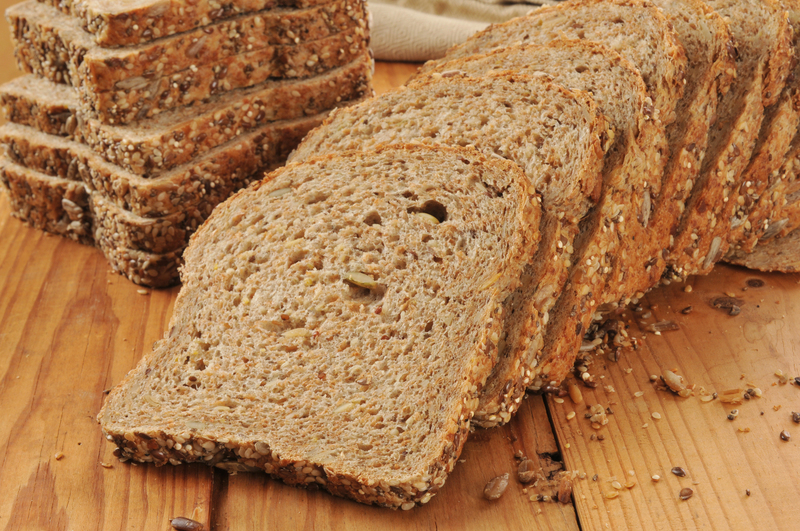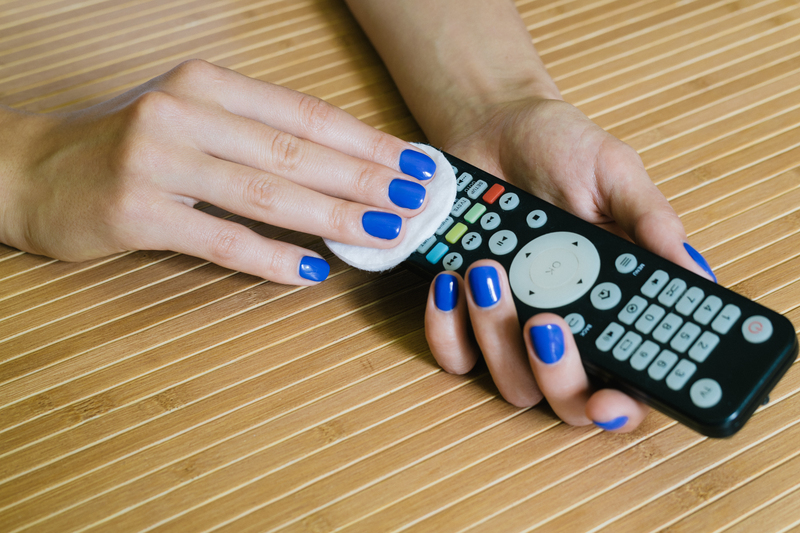Master the Art of Jewellery Cleaning
Posted on 22/08/2025
Master the Art of Jewellery Cleaning: The Ultimate Guide
Jewellery is not just an accessory—it is an expression of your personality, a symbol of cherished moments, and often a treasured investment. Keeping your valuables sparkling and well-maintained is essential to preserve both their beauty and value. Fortunately, you can master the art of jewellery cleaning at home with the right techniques, tools, and knowledge.

Why Is Jewellery Cleaning Important?
Over time, dust, sweat, lotions, and everyday grime can dull your jewellery pieces. Dirty jewellery not only looks lacklustre but can also harbour bacteria and even cause skin irritations. Additionally, improper storage or accumulated residue can wear down precious metals and loosen gemstones. Regular jewellery cleaning keeps your pieces sparkling, pristine, and safe to wear.
- Maintains Aesthetic Appeal: Makes your pieces look as good as new.
- Prevents Damage: Stops dirt and oils from causing abrasions.
- Prolongs Longevity: Helps protect your investment in the long run.
- Health and Hygiene: Minimizes risk of skin issues from bacteria.
Best Practices for Jewellery Cleaning at Home
Not all pieces are created equal. Mastering the art of jewellery cleaning involves knowing which method suits which material. Custom cleaning solutions and gentle techniques can protect the lustre and structure of a variety of precious items, from sparkling diamonds to delicate pearls.
General Jewellery Cleaning Guidelines
- Always handle jewellery with clean hands.
- Use a soft-bristle toothbrush for gentle scrubbing.
- Avoid hot water, which can cause thermal shock and fractures.
- Remove rings and other jewellery before using abrasive cleaners or doing heavy-duty work.
How to Clean Different Types of Jewellery
Gold Jewellery
Gold does not tarnish easily, but it can lose its shine due to oils and residue. Here is a step-by-step method for gold jewellery cleaning:
- Mix a few drops of mild dish soap in warm (not hot) water.
- Soak your gold pieces for 15-20 minutes.
- Gently brush crevices and stones with a soft toothbrush.
- Rinse thoroughly in clean lukewarm water.
- Pat dry with a lint-free, soft cloth.
Tip: For stubborn grime, add a tiny bit of club soda to the soaking mixture!
Silver Jewellery
Silver is prone to tarnishing; however, it's also easy to restore. To achieve sparkling results:
- Line a small bowl with aluminium foil, shiny side up.
- Add hot water, a tablespoon of baking soda, and a pinch of salt.
- Place silver pieces in the solution, making sure they touch the foil.
- Wait 2-5 minutes, then rinse and dry completely.
This chemical reaction reverses tarnish in seconds!
Diamond Jewellery
Diamonds attract oil and can quickly lose their brilliant sparkle. To clean diamond jewellery effectively:
- Soak jewellery in a solution of ammonia and water (1:6 ratio) for 10 minutes.
- Use a soft brush to remove debris under settings and behind stones.
- Rinse thoroughly in clean water and dry with a soft cloth.
Note: Avoid ammonia on gold with gemstones other than diamond.
Pearl and Delicate Gemstone Jewellery
Pearls and some gemstones (turquoise, opal, malachite, etc.) require extra care. You must avoid soaking and harsh solutions:
- Wipe gently with a damp, lint-free cloth after wearing.
- Use only clean water with a small amount of mild soap if necessary.
- Do not immerse or use ultrasonic cleaners.
Tip: Always store pearls flat and away from direct sunlight, cosmetics, and chemicals.
Top Professional Jewellery Cleaning Techniques
Sometimes, at-home methods may not suffice for intricate, vintage, or heavily soiled pieces. Jewellery cleaning services employ specialized equipment:
- Ultrasonic Cleaners: Use sound waves and cleaning solutions to dislodge dirt from tiny crevices.
Note: Not safe for all gemstones. - Steam Cleaners: High-pressure steam effectively removes grime, especially from diamonds and hard gemstones.
- Polishing Machines: Give metal surfaces a mirror-like finish.
Professional cleaning is recommended once or twice a year, especially for family heirlooms or engagement rings.
Jewellery Cleaning: Common Mistakes to Avoid
To master the art of jewellery cleaning, it's just as critical to know what not to do. Here are frequent errors to sidestep:
- Using Toothpaste or Baking Soda Directly: These are abrasive and can scratch metals/gems.
- Soaking in Bleach or Chlorine: Chemicals can damage metals and fade stones.
- Using Paper Towels: They can scratch delicate surfaces. Choose a microfibre or jewel cloth instead.
- Not Checking for Loose Stones: Always inspect items before and after cleaning to avoid losing gems.
- Ignoring Professional Assessment: Particularly for valuable or antique pieces with complex settings.
Homemade Jewellery Cleaners: Are They Safe?
A range of DIY jewellery cleaning methods circulate online, but not all are safe for your valuables. Here is what's trustworthy:
- Soap and Water: Always safe for most metals and hard stones.
- Non-Residue Glass Cleaner: Effective for diamonds, but never for pearls or porous gems.
- White Vinegar: Great for sterling silver (avoid if gemstones are present).
Never use abrasives, strong acids, or detergents containing ammonia on delicate stones or antique pieces. When in doubt, consult a professional.
How Often Should You Clean Your Jewellery?
Jewellery cleaning frequency depends on how often a piece is worn and the conditions it's exposed to.
- Daily Wear (e.g., wedding bands, engagement rings): Clean weekly, wipe down nightly, and do a deep clean monthly.
- Occasional Pieces (cocktail rings, statement necklaces): Clean after each wear and deep clean several times a year.
- Delicate Antique and Heirloom Jewellery: Clean minimally and professionally once a year.
Avoid wearing your jewellery in swimming pools, gyms, saunas, or during rough work to minimize cleaning requirements.
Jewellery Storage Tips to Keep Pieces Clean
Proper storage is a cornerstone of keeping your pieces pristine between cleanings. Take note of the following:
- Store each piece separately to prevent scratches.
- Use soft pouches or visited jewel cases with padded compartments.
- Keep away from direct sunlight and excess humidity.
- Loop necklaces to avoid tangling.
- Place anti-tarnish strips in your jewellery box for silver pieces.
FAQs: Mastering the Art of Jewellery Cleaning
Can I use ultrasonic cleaners on all jewellery?
No. Avoid ultrasonic cleaners for pearls, opals, emeralds, and any stones held by glue. Always check with your jeweller first.
How do I clean costume jewellery?
Use a soft, barely damp cloth and pat dry immediately. Avoid soaking; the glue may dissolve, and faux metals can tarnish.
Best homemade solution for gold and platinum?
Mild dish soap and warm water works perfectly; gently scrub, rinse, and dry.
What if my jewellery is severely tarnished?
For heavily tarnished items, professional cleaning is safest. Home methods may not restore the original shine and might even damage intricate designs.

Jewellery Cleaning Products: What to Buy
Besides household solutions, various jewellery cleaning kits are available. Look for non-abrasive, pH-neutral formulas. Avoid anything with harsh chemicals.
- Diamond cleaning pens
- Non-abrasive cleaning cloths
- Gem-safe dips and foams
- Ultrasonic mini machines (check suitability first)
Always read instructions and confirm suitability for your piece before use.
Conclusion: Keep Your Sparkle Alive
Mastering the art of jewellery cleaning not only enhances the radiance of your beloved pieces but also preserves their sentimental and monetary value. Regular, tailored care is the secret to keeping your rings, necklaces, bracelets, and earrings shining bright year after year. With simple tools, gentle solutions, and trusty techniques, you can achieve professional results at home while minimizing the risk of damage. Remember: when in doubt, seek professional advice—your treasured pieces deserve the best!
Want more tips? Bookmark this guide, share it with fellow jewellery enthusiasts, and keep your collection dazzling for generations to come!




